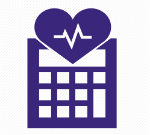Self Help Health Tools:Smoking Cost Calculator.
-
 ✵Useful online Self Help Tools and Health Tools available,enjoy them for health conditions calculation and conversions:Weight Unit Converter, Currency Conversion, Capacity and Volume Conversion, Length Conversion, Online Calculator, Ideal Weight Calculator, Healthy Weight Calculator for Man and Women, BMI(Body Mass Index) Calculator, Waist-hip Ratio Calculator, Basal Metabolic Rate(BMR) Calculator, Weight Loss Calculator, Daily Calories Burned Calculator, Walking Calorie Burn Calculator, etc.
✵Useful online Self Help Tools and Health Tools available,enjoy them for health conditions calculation and conversions:Weight Unit Converter, Currency Conversion, Capacity and Volume Conversion, Length Conversion, Online Calculator, Ideal Weight Calculator, Healthy Weight Calculator for Man and Women, BMI(Body Mass Index) Calculator, Waist-hip Ratio Calculator, Basal Metabolic Rate(BMR) Calculator, Weight Loss Calculator, Daily Calories Burned Calculator, Walking Calorie Burn Calculator, etc.
- Smoking Cost Calculator.
-

Smoking Cost Calculator There are many reasons to quit smoking. The financial cost is just one.Learn how much you spend on cigarettes. It might just be the reason you decide to quit.Quitting smoking not only "greatly reduces serious risks to your health" but it also can greatly increase your disposable income.
♣ Prevention:"Education and counselling by physicians of children and adolescents has been found to be effective in decreasing the risk of tobacco use. Systematic reviews show that psychosocial interventions can help women stop smoking in late pregnancy, reducing low birthweight and preterm births."
♣ Disadvantages of Smoking:"Smoking causes illness and death, among other disadvantages. It is the most preventable lifestyle factor affecting human health. Smoking harms every organ in your body. Your heart, blood vessels, lungs and fertility are all negatively affected by smoking and the chemicals in cigarettes."
♣ Heart and Blood Vessel Health:Smoking changes the structure of blood vessels. This can lead to the buildup of plaque that hardens and narrows the vessels, causing a disease called atherosclerosis. Atherosclerosis is a common cause of heart attacks and peripheral artery disease. Smoking increases your likelihood of developing high blood pressure. The carbon monoxide inhaled from cigarette smoke interferes with the way oxygen is carried by your blood to organs, including the heart, which links it to heart disease. Smoking also increases the incidence of blood clots, which can lead to strokes.
♣ Lung Function:The lung is the main target of the smoke inhaled by cigarettes because it has direct contact with the chemicals. Smoking is the most common cause of chronic obstructive pulmonary disease, or COPD, which affects the function of the lungs and how they deliver oxygen into the body. COPD includes chronic bronchitis and emphysema and involves a change in the structure of your lung tissue and airways. If you have asthma, smoking can increase the frequency and severity of attacks. Smoking diminishes lung function, so you may experience shortness of breath even with little or no exertion.
♣ Effects on Fertility and Babies:Smoking contributes to infertility and decreases the chance of conception whether you are a man or woman. Men who smoke are found to have a reduced total sperm count in addition to a decrease in the sperm's ability to fertilize an egg. Smoking diminishes the capacity of an ovary to create eggs that are capable of healthy fertilization. If you are pregnant and a smoker, you increase the risk of a low-birth-weight or preterm baby. An estimated 20 to 30 percent of low-birth-weight babies and 14 percent of preterm births are attributed to smoking in pregnancy, according the U.S. Surgeon General’s report on women and smoking. There is a higher chance your baby will have asthma if you smoked during pregnancy. Even some full-term babies will have diminished lung function if you smoked while pregnant.
♣ Smoking Causes Cancer:An estimated 1 in 3 deaths from cancer are attributed to smoking, notes the U.S. Surgeon General’s 2010 report on the relationship between smoking and disease. The report points out that smoking causes 87 percent of lung cancer deaths and is also responsible for cancer in many other parts of the body. If you smoke, you are at higher risk for cancers of the esophagus, throat, mouth, and stomach, among others. In addition to the addictive ingredient of nicotine, cigarettes contain about 600 ingredients. When burned, 4,000 chemicals are created, approximately 50 of which are carcinogenic.
♣ Disadvantages to Your Family:Smoking is the leading cause of preventable death. The Centers for Disease Control and Prevention reports that an estimated 443,000 Americans die every year from smoking-related diseases, including those indirectly affected. Secondhand smoke is a mixture of the smoke from the burning end of a cigarette or cigar and what the smoker exhales. Even low levels of secondhand smoke are harmful. Secondhand smoke contributes to the incidence of ear infections and asthma attacks in children, increases the risk of sudden infant death syndrome and can cause smoking-related diseases in people who have never smoked. More than 3,400 lung cancer deaths every year in the U.S. are attributed to secondhand smoke, according to the American Cancer Society. Besides the negative health effects, smoking is expensive: Smoking a pack of cigarettes each day costs more than $5,000 a year. Even though many smoking-induced effects can be reversed after quitting, some are permanent. The best way to avoid these risks is to not smoke or to quit if you have started.
